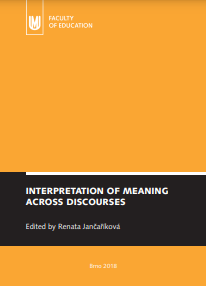MODALITY IN ACADEMIC DISCOURSE: MEANING AND USE OF EPISTEMIC VERBS IN RESEARCH ARTICLES
MODALITY IN ACADEMIC DISCOURSE: MEANING AND USE OF EPISTEMIC VERBS IN RESEARCH ARTICLES
Author(s): Melanie Marcinkowski
Subject(s): Theoretical Linguistics, Higher Education , Stylistics
Published by: Masarykova univerzita nakladatelství
Keywords: academic writing; natural sciences; specialised and popular discourse; epistemic modality;
Summary/Abstract: This contribution reports on a study of epistemic verbs in a corpus of scientific research articles from two subdisciplines of the natural sciences (Biosciences and Physics) and their popular adaptations in New Scientist. Epistemic devices express the writer’s commitment to the truth value of a state of affairs. Epistemic verbs can be divided into downtoners, i.e. verbs that indicate writers’ lack of confidence (e.g. indicate, assume) and indicators of certainty that express writers’ conviction of the state of affairs described in the proposition (e.g. show, conclude). Epistemic verbs are thus an important means of communicating knowledge and presenting findings in scientific research articles and their popular versions. This study explores the meaning and use of frequent epistemic verbs in their personal and impersonal uses and aims at contributing to the research on stylistic conventions in scientific and popular academic writing. The analysis shows that there are quantitative as well as qualitative differences in the use of epistemic verbs between the two subdisciplines and their popular versions.
Book: Interpretation of Meaning Across Discourses
- Page Range: 47-59
- Page Count: 13
- Publication Year: 2018
- Language: English
- Content File-PDF

